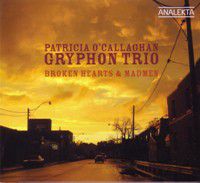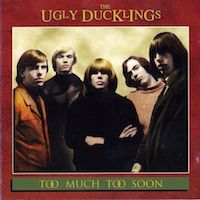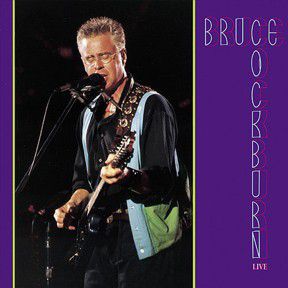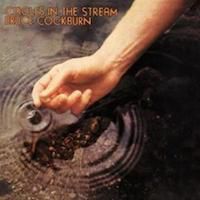Rare is the band that survives the challenges of constant touring, recording and inevitable membership changes. Rarer still is the group that keeps improving, consistently honing its craft and polishing its sound. The Sattalites have achieved that remarkable feat over the course of 30 years, establishing themselves along the way as one of the world's premier reggae acts. Built on the foundational talents of Jo Jo Bennett and Fergus Hambleton, the Sattalites have forged a fresh, vital sound that blends stirring roots reggae with thrilling harmonic pop. This collection represents all sides of the Sattalite sound, from the bubbling joy of "Wild" to the horn-driven ride of "Sunroof." Two can mak...
Music journalism, books and more
The Summer of Love gave the world the Monterey Pop Festival and The Beatles’ Sgt. Pepper. Ultimately, those precious months in 1967 produced something far greater: the full flowering of the hippie movement and a sense of cultural, social and political barricades coming down. Change was in the air. The seeds were sown at the Human Be-In in San Francisco’s Golden Gate Park and quickly spread to most major cities in the western world. In Toronto, the May Love-In at Queen’s Park attracted a crowd of barefooted flower children who danced to Buffy Sainte-Marie and Leonard Cohen under a thick cloud of marijuana smoke. That same month, three musicians from Yorkville, Toronto’s hippie village, gather...
 The most adventurous sounds are those that defy restrictive labels and easy categorization. Eclecticism has long been a mainstay of the jazz and pop worlds, where experimentation is encouraged and celebrated. But chamber music, with its roots in specific classical repertoire, has often been limited by advocates intent on simply keeping old traditions alive. Canada’s Gryphon Trio, one of North America’s top chamber ensembles, is committed to changing that.
The most adventurous sounds are those that defy restrictive labels and easy categorization. Eclecticism has long been a mainstay of the jazz and pop worlds, where experimentation is encouraged and celebrated. But chamber music, with its roots in specific classical repertoire, has often been limited by advocates intent on simply keeping old traditions alive. Canada’s Gryphon Trio, one of North America’s top chamber ensembles, is committed to changing that.
Formed in 1993, the Trio—cellist Roman Borys, pianist Jamie Parker and violinist Annalee Patipatanakoon—began pushing the boundaries for chamber music by commissioning and performing new works from both established and emerging composers. Its multimedia production of Christos Hatzis’s Constantinople, took the Gryphons deep into cross-cultural terrain. Set at the crossroads of East and West, Constantinople brought the Trio together with Arabic singer Maryem Hassan Tollar and soprano Patricia O’Callaghan in acclaimed performances across North America and at London’s Royal Opera
Catalysts of the folk boom, Canada’s Ian Tyson and Sylvia Fricker burst onto the scene in the early 1960s with a unique vocal sound. Sold-out concerts at Carnegie Hall. Headline appearances at the Newport and Mariposa festivals. Hit songs like the now-classic “Four Strong Winds” and “You Were On My Mind.” A real singing cowboy and a church organist’s daughter, Ian & Sylvia were one of the hottest acts around. But all of that changed in the mid-1960s when The Beatles and the British Invasion landed on North American shores. The folk boom suddenly went bust and everyone—including Ian’s mentor, a scruffy kid named Bob Dylan—began plugging in. “The Beatles shut us down,” Ian recalled in his ...
It’s the inevitable fate of a multi-faceted artist as ridiculously talented as Paul Quarrington that one creative field should overshadow the others. In Paul’s case, his musical career was rudely hijacked by his literary success. Long before the awards for fiction, humour and screenplays, Paul was a musician—and an extremely good one. He played bass and sang in the eccentric cult-rock band Joe Hall & the Continental Drift, a band his guitarist brother Tony once described as “an acquired taste that no one acquired.” He wrote songs, played guitar and sang with lifelong friend Martin Worthy in the underrated folk duo Quarrington Worthy—even scoring a number one hit in 1980 with “Baby and th...
 On a spring night in 1965, a warm breeze blew along Toronto’s Yorkville Avenue, carrying with it a strange mixture of scents: rich coffee, pungent marijuana and noxious automobile exhaust. Cars crawled along the one-way street between Bay and Avenue Road, past sidewalks filled with teenagers in Beatlecuts and miniskirts. Some sat on café patios, others strolled along the tree-lined boulevard or hung out on doorsteps. Boys watching girls watching boys.
On a spring night in 1965, a warm breeze blew along Toronto’s Yorkville Avenue, carrying with it a strange mixture of scents: rich coffee, pungent marijuana and noxious automobile exhaust. Cars crawled along the one-way street between Bay and Avenue Road, past sidewalks filled with teenagers in Beatlecuts and miniskirts. Some sat on café patios, others strolled along the tree-lined boulevard or hung out on doorsteps. Boys watching girls watching boys.
Like flowers in a hothouse, the musicians in Yorkville thrived on the responses of those who flocked to hear them. There was literally something for everyone: the traditional jazz of Jim McHarg & his Metro Stompers at the Penny Farthing, the delicate ballads of Joni Mitchell at the New Gate of Cleve, the blues folk of John Kay at the Half Beat and the stirring songs of Gordon Lightfoot at the Riverboat.
Meanwhile, the new pop sound had infiltrated the village, with British-influenced bands everywhere: Jack London & the Sparrows at the Café El Patio, Dee & the Yeomen up at the Night Owl and the hard-rocking Ugly Ducklings
For some people, ska music died with the passing of Britain’s two-tone movement in the 1980s. But they only knew it as a post-punk dance craze anyway. As Jamaica’s peppy precursor to reggae, pioneered by legends like Jackie Mittoo, Don Drummond and Prince Buster, ska has a long and vibrant history whose influence still reverberates today.
In England, the ska banner was first held high by Desmond Dekker, a Jamaican singer whose songs “007 (Shanty Town)” and the classic “The Israelites” sent syncopated shock waves across radioland in the 1970s. By the end of the decade, ska was bubbling up big time in Old Blighty, with two-toners The Specials and The English Beat opening for the likes of Elvis Costello and The Clash.
Into those heady days stepped Adrian Miller, Mr. Rude Boy himself, a young Jamaican who found England’s music scene totally inspiring. “The whole climate was more experimental than what was going on back home,” recalls Miller. “There were older musicians like Saxa and Rico, who had first started doing ska back in Jamaica, playing with young groups like The Beat and The Specials. It was an amazing time.”
 Over the years, Bruce Cockburn concerts have evolved from solo performances in moccasins into full-band gigs in army boots. In the beginning, Cockburn travelled around in an old camper truck, a vagabond poet with acoustic guitar in hand and faithful dog, Aroo, at his feet. During the ’80s, he and his group toured in a large streamlined bus, dressed like urban guerrillas wielding an arsenal of electric instruments. By the end of that decade—and for much of the next—Cockburn downsized and performed with just a pair of talented sidemen. But as his superb live recordings reveal, regardless of the era or the size of his entourage, Cockburn’s concerts are always a wonder to behold: expansive, entrancing and full of surprises.
Over the years, Bruce Cockburn concerts have evolved from solo performances in moccasins into full-band gigs in army boots. In the beginning, Cockburn travelled around in an old camper truck, a vagabond poet with acoustic guitar in hand and faithful dog, Aroo, at his feet. During the ’80s, he and his group toured in a large streamlined bus, dressed like urban guerrillas wielding an arsenal of electric instruments. By the end of that decade—and for much of the next—Cockburn downsized and performed with just a pair of talented sidemen. But as his superb live recordings reveal, regardless of the era or the size of his entourage, Cockburn’s concerts are always a wonder to behold: expansive, entrancing and full of surprises.
The result of three years of traveling to such far-flung places as Mozambique, Nepal and Central America, the songs on 1989’s Big Circumstance reflect Bruce Cockburn’s heartfelt reactions to war, repression and environmental abuse. The celebrated Canadian singer-songwriter was already well known for such forthright songs of the 1980s as “If I Had a Rocket Launcher” and “Call it Democracy.” With Big Circumstance, Cockburn ended the decade with some of the most politically potent material of his career, including “If a Tree Falls,” which tackled the issue of rain forest destruction. “From Sarawak to Amazonas, Costa Rica to mangy B.C. hills,” he sang angrily, “ancient cord of coexistence hacked...
 One of the marks of a great live album is the ability of the artist to inject his material with new vitality, to the point where even well-known songs take on fresh meaning. Bruce Cockburn did exactly that with Circles in the Stream, which caught the Canadian folksinger at the culmination of his first tour with a full band. That group provided the kind of intelligent and intuitive accompaniment that creates an inspired—and inspiring—concert experience. “It’s amazing to hear how tight we are together,” percussionist Bill Usher once recalled, on hearing the recording. “We’re all hitting the same accents at the same time and in harness with each other.”
One of the marks of a great live album is the ability of the artist to inject his material with new vitality, to the point where even well-known songs take on fresh meaning. Bruce Cockburn did exactly that with Circles in the Stream, which caught the Canadian folksinger at the culmination of his first tour with a full band. That group provided the kind of intelligent and intuitive accompaniment that creates an inspired—and inspiring—concert experience. “It’s amazing to hear how tight we are together,” percussionist Bill Usher once recalled, on hearing the recording. “We’re all hitting the same accents at the same time and in harness with each other.”
Recorded in the spring of 1977 at Toronto’s venerable Massey Hall, Circles in the Stream captures Cockburn at the peak of his creative powers. Originally released shortly after Cockburn’s fine transitional album In the Falling Dark, the live recording blends adventurous jazz textures with his more familiar folk influences. The album opens with the stirring sound of a traditional Scottish tune on bagpipes, before Cockburn and his sidemen—Usher, bassist Robert Boucher and electric pianist and marimba player Pat Godfrey—segue into a shimmering rendition of “Starwheel.” Following a marimba-laced version of the stark “Never So Free,” Cockburn launches into three newly written songs: the stunning guitar instrumental “Deer Dancing Round a Broken Mirror,” the dreamy, jazz-tinged French song “Homme Brûlant (Burning Man)” and the rhythmic, politically charged number “Free to Be.”
Two other new songs rank among the album’s highlights. Like “Deer Dancing,” the wondrously intricate instrumental “Cader Idris,” named after a Welsh mountain which means “Chair of Idris,” showcases Cockburn’s superb fingerpicking and fretwork. “Red Brother Red Sister” acknowledges the historic

